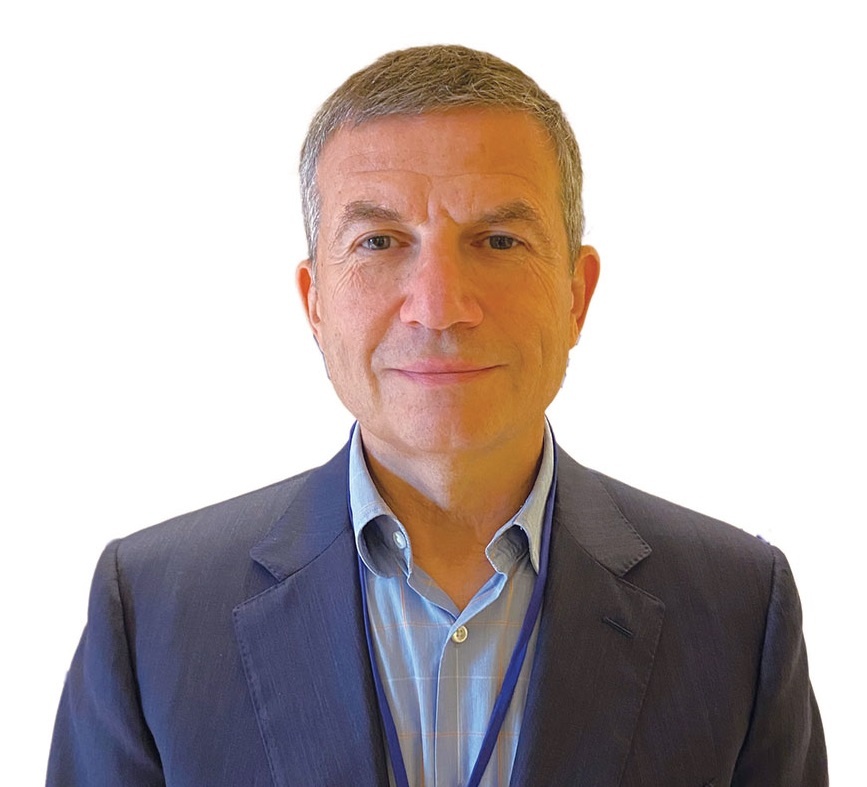Tie-ups promising for cross-border M&A
The conference, held in Ho Chi Minh City last week, brought together 30 notable M&A advisory firms from over 50 countries across the Americas, Europe, and Asia-Pacific. It underscored Vietnam’s continued allure in the M&A sphere, despite its relatively small market size.
 |
| Tie-ups promising for cross-border M&A, illustration photo/ Source: freepik.com |
Masataka “Sam” Yoshida, senior director and Global Cross-Border head at RECOF Corporation, said that Vietnam has successfully drawn investment from various Asian markets, but has been less successful in attracting European and American investors.
“With the yen’s decline, Japanese investors face the necessity of storing significant funds in banks, driving the need to seek profitable investments in promising markets like Vietnam,” he explained. “Currently, under the yen’s pressure, Japanese investors are incurring costs about 1.3 times higher than before for M&A transactions. This presents a significant challenge.”
Yoshida also expressed optimism about Vietnam’s M&A market, especially in consumer-centric sectors such as fast-moving consumer goods, retail, food production and processing, logistics, and non-banking fintech.
“Despite our recent 20 cross-border M&A deals excluding any Vietnamese transactions, we foresee Vietnam as a market brimming with potential,” said Yoshida. “We are actively seeking opportunities and potential partners to introduce to our network.”
Ivan Alver, partner and chairman at Saga Corporate Finance, and co-founder of Global M&A Partners, noted an emerging trend of British, American, and European investors looking towards Vietnam.
“While Myanmar offers lower labour costs, this advantage is diminishing. In China, political instability and rising production costs are causing international investors to hesitate in expanding there,” Alver said.
Regarding the semiconductor sector, Alver believed Vietnam holds significant promise thanks to advantages such as recent agreements with the US and active international investment in manufacturing and research facilities. “Vietnam’s attractiveness as a destination for foreign investment in electronics manufacturing is a boon for the semiconductor industry,” he noted.
Alver also highlighted the global attention on data centre investments. “Vietnam should aggressively pursue renewable energy sources to green data centres, reducing their carbon footprint. This aligns with the global trend in data centre operations,” he said.
Tran Vinh Du, partner and leader of Strategy & Transaction at E&Y in Vietnam and the Indochina region, said that while 2023 has seen a downtrend in M&A activities in Vietnam, the slowdown is relatively moderate compared to regional peers.
“Since 2019, we observed two of the largest annual deals in Vietnam involving Japanese investors in the financial services industry. This trend is a testament to the sustained interest of Japanese investors in Vietnam’s market potential,” Du explained.
Arnaud Ginolin, partner at Boston Consulting Group Vietnam, pointed out that while Vietnamese electronics manufacturers primarily focus on downstream activities, the current advantages position the country well along the semiconductor value chain.
“To sustain this growth trajectory, Vietnam must proactively develop a clear strategy and value proposition. A comprehensive policy roadmap, including additional incentives to attract investment and a strong intellectual property protection agenda, is essential,” Ginolin shared.
Frederic De Boer, ZETRA’s founding partner and co-founder of Global M&A Partners, observed that the manufacturing sector is particularly appealing to European investors.
“Several of our clients from Europe and the US are actively pursuing investment opportunities in Vietnamese manufacturing,” De Boer said. “We have two major infrastructure clients in Switzerland, currently operating in China, who are exploring shifting to Vietnam, impressed by the local human resources and business environment.”
Yoshida further highlighted the need for clearer regulations in M&A transactions involving publicly listed companies.
“Vietnam requires more explicit guidelines for instruments serving M&A transactions in its stock market. Proper implementation would enhance foreign capital inflows in M&A, as transactions become easier and more structured, alleviating foreign investors’ confusion,” he assessed.
Meanwhile, Alver mentioned the high levels of “dry powder” or reserve cash among investment funds, with numerous transactions between buyers and sellers and a substantial amount of cash still available.
“Even with factors like the risk of recession, the amount of capital in the markets has sustained a high volume of transactions. These are not just limited to specific regions. We’re seeing this trend in the US and the EU as well,” he said.
He continued that governments have realised the importance of keeping funds available in the market. Additionally, the emergence of private equity firms with a need to invest their capital within a specified period has also bolstered this situation.
“We’re seeing that the availability of dry powder is better than ever globally, even in times of crisis. This has fostered a strong resilience in the market, allowing for continuous investment activities despite economic challenges,” Alver added.
He also highlighted the importance of timing in the process of selling a company.
“It’s crucial to start early when considering selling a company. Normally, the process could take about nine months, but the sooner it begins, the better. This early engagement allows for ample preparation and advice on making the company as attractive as possible for sale,” he said. “But the most important advice we give is not to rush. Be prepared to spend about a year on the process.”
Notable M&A deals this year include Japan’s SMBC acquiring a 15 per cent stake in VPBank for $1.5 billion and US-based KKR Global Impact investing $120 million in EQuest.
President and CEO of Japan’s Marubeni Corporation, Masumi Kakinoki, last week said, “We are planning to continue investing billions of US dollars in Vietnam, focusing on energy, goods processing, exports, and infrastructure development. Our commitment to these areas underscores our confidence in Vietnam’s growth potential and strategic importance in our global investment strategy.”
In late October, Marubeni scooped up a stake in AIG, a major supplier and manufacturer of food ingredients and packaged food products in Vietnam.
| Aaron Franzheim - Vice president Meridian Capital LLC
The Global M&A Partners conference is a great opportunity to bring together different individuals from around the world to collaborate on M&A activities. Being present in Vietnam for this event is special for us, and we have learned a lot about investment opportunities in Vietnam. In particular, American businesses are currently very interested in agricultural technology, electronics manufacturing and other fields. We are looking forward to expanding our business and are interested in the cost advantages in the labour market that Vietnam brings. This is a really great and good opportunity for some of the customers and companies that we work with. US companies should know that there are many good opportunities in Vietnam to invest and they should have good reasons to invest in Vietnam, such as a good stable economy and a dynamic business community. M&A activities in the coming time should focus on finance, education, infrastructure development, technology, and semiconductor production. We all know that remotely understanding the cultural and legal environment poses a number of challenges for US companies. But they will have a successful business if they find the right local partner who can help them navigate good business here. After this conference, we will expand our network as well as through our regular US communications network with many investors across all sectors and to ensure that they are aware of the opportunities here. At the same time, we will take advantage of local resources to successfully connect partners, introduce opportunities to US investors, and support them in accessing the Vietnamese market. Zoltán Siklósi - Managing director Invescom Corporate Finance
We cover central Eastern Europe and have been active in selling and buying business over the years. Southeast Asia is becoming very interesting and it is high time for us to approach this market. Vietnam traditionally has very strong links with Hungary and this is a great opportunity for us to explore more about the country, which has been showing lots of interest and is one of the most stable locations with a good infrastructure system, skilled human resources, and fresher legislation. The interest of the global investment community is really increasing in the region and this conference is the first ever in Southeast Asia, which we believe is probably one of the most promising areas of growth. It was very interesting for us to meet a Japanese partner from RECOF who can connect us to Vietnam. Basically, it helps us to identify investment opportunities. From my point of view, technology and agriculture are the most promising areas for M&A deals in the Vietnamese market, together with logistics, consumer goods, and semiconductors as well. Ben Rookers - Partner, Deals & Corporate Finance Cooper Parry UK
I didn’t know much about Vietnam before coming here. What’s interesting, though, is that we attended a number of Global M&A Partners conferences in South America, and issues like inflation were getting out of control. So, it’s good to know that things are moving in the right direction in Vietnam and that the nation is in control of a lot of macroeconomic issues, which really directly affect investment flows into Vietnam. I think the big opportunity is in manufacturing and technology. Much of Britain relies on services, so the majority of our manufacturing is carried out outside the UK. We have a number of customers who have manufacturing operations or joint ventures in Asia, but I’m glad to see that Vietnam is now at the negotiating tables. Therefore, our goal is to raise foreign investors’ awareness of the Vietnamese market so that they see it as an alternative to some traditional production areas. I will work with my partners and exchange information with them about the Vietnamese market. Our clients need to be reassured that when considering expansion or changes to some of their plans, Vietnam is highly recommended for consideration. |
| Vietnam heads regional M&A bounce Japanese investors won’t shy from possible M&As M&A still in vogue despite economic headwinds Key drivers remain same for cross-border M&A transactions |
What the stars mean:
★ Poor ★ ★ Promising ★★★ Good ★★★★ Very good ★★★★★ Exceptional
Related Contents
Latest News
More News
- New rules ease foreign access to Vietnam equities (February 05, 2026 | 17:29)
- Vietnam’s IFC creates bigger stage for M&As (February 01, 2026 | 08:16)
- Game startup Panthera raises $1.5 million in seed funding (January 29, 2026 | 15:13)
- Cool Japan Fund transfers shares of CLK Cold Storage (January 28, 2026 | 17:16)
- Nissha acquires majority stake in Vietnam medical device maker (January 26, 2026 | 15:40)
- BJC to spend $723 million acquiring MM Mega Market Vietnam (January 22, 2026 | 20:29)
- NamiTech raises $4 million in funding (January 20, 2026 | 16:33)
- Livzon subsidiary seeks control of Imexpharm (January 17, 2026 | 15:54)
- Consumer deals drive Vietnam’s M&A rebound in December (January 16, 2026 | 16:08)
- Southeast Asia tech funding rebounds on late-stage deals (January 08, 2026 | 10:35)




 Tag:
Tag:



















 Mobile Version
Mobile Version